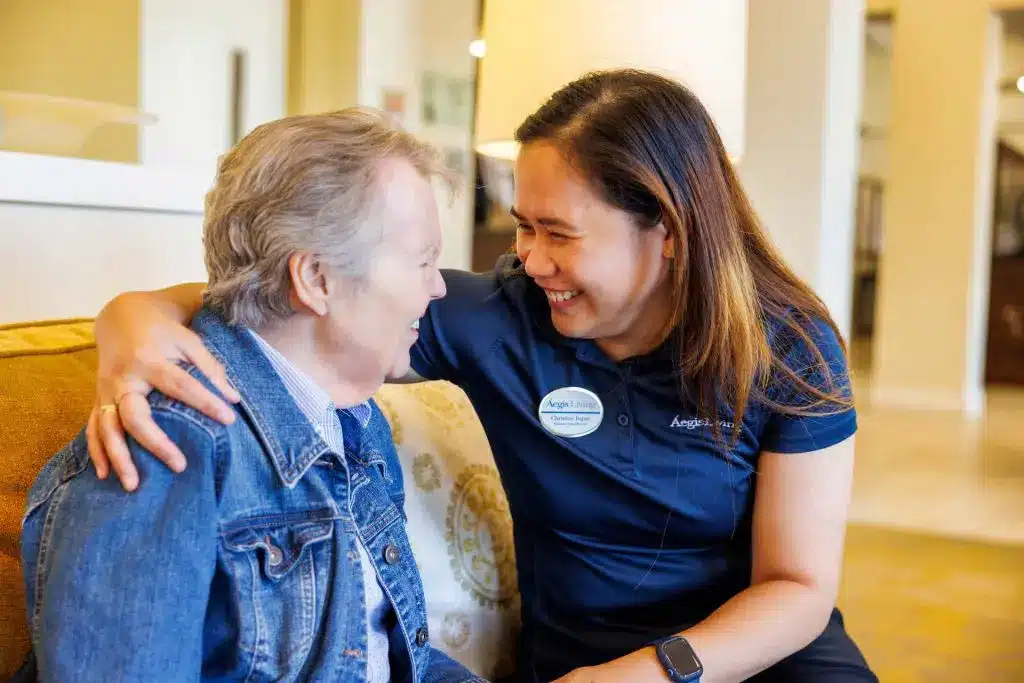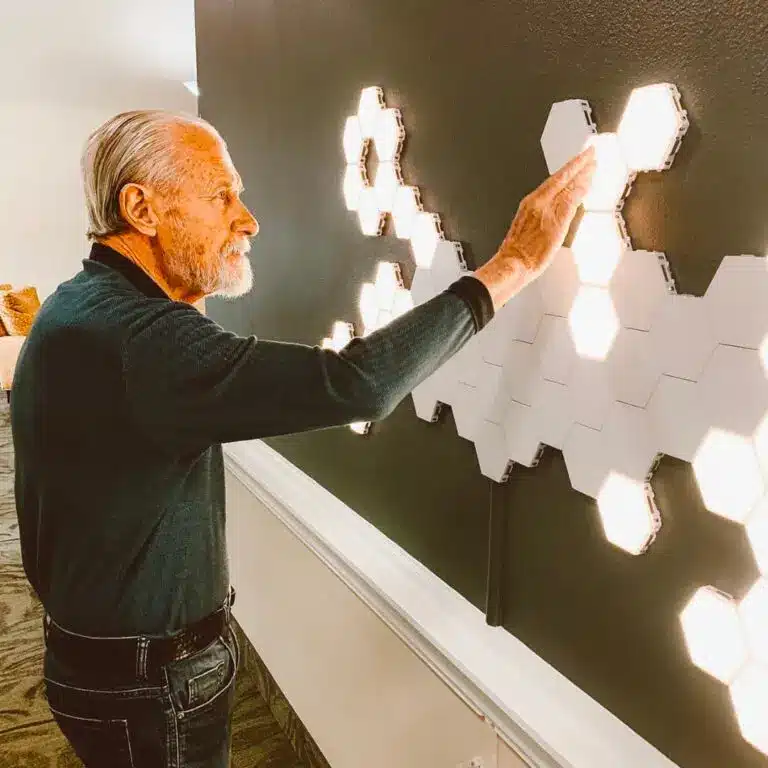- Medical Care. Licensed nurses to oversee health concerns and changes in behavior or memory loss.
- Care Staff. Around-the-clock care staff skillfully handle behavioral changes by personalizing their approach to each resident and making meaningful connections.
- 24-Hour Safety and Security. Memory care communities are designed and secured to keep residents safe and to prevent wandering behaviors that can sometimes occur with memory loss.
- Nutritional Programs. Chef-prepared meals and thoughtfuldietary programs increase essential nutrients, boost immunity, maintain hydration, and encourage healthy eating.
- Social Activities and Programs. Activity programs encourage socialization and engagement by meeting the cognitive level of each resident.
- Housekeeping and Laundry Services. Residents will always have freshly laundered clothing and linens available in their clean and tidy apartments.
- Transportation. If needed, staff will accompany memory care residents outside of the community for medical appointments with our available transportation.
Medical Care
Like the individuals themselves, memory loss is unique to each person. The benefit of moving your loved one to a memory care community is that they will be cared for by specially trained staff experienced at caring for residents with memory loss. Staff can quickly adapt to the physical and behavioral changes of a resident as their memory loss progresses. At Aegis Living, our residents’ health is continuously monitored. Since many are often unable to communicate their needs, we pay careful attention to changes, both physical and mental. Our medication managers ensure that our residents take any prescribed medication in the correct dosage and at the correct time of the day. Because each resident experiences symptoms and stages of memory loss progression differently, we cater our care plans to meet their unique needs.
24-Hour Staff Supervision
Residents with Alzheimer’s or other forms of dementia find great comfort in a daily routine. Our around-the-clock staff is specially trained to relieve frustration, anxiety, and even aggression with gentle redirection, creative solutions, and keeping residents in a consistent routine. Our teams can manage proper nutrition, hydration, physical activity, fresh air, companionship, and cognitive stimulation throughout the day. Our staff caters activities to complement the strengths of the individual and support them when they need more help, meeting them where they are. Our goal is to keep our memory care residents engaged all day long. We encourage them to be independent where they can and are supportive when they need us.
Safety & Security
One of the many reasons that families move their loved ones with memory loss to a memory care community is for their safety. Wandering or exit-seeking may occur with memory loss (whether at home or in a community). Families are often worried that their loved one will wander off or be unable to remember how to get back home. For this reason, most memory care communities are secured with locked doors or delayed egress and safety measures, like motion sensors, so a resident cannot leave a community without supervision. In our Aegis Living communities, we have camouflaged doorways in our memory care wings, so residents are not tempted to exit a door. It is secured for the safety of our residents and your peace of mind. We draw from over 20 years of experience caring for people with memory loss to put in place the best practices that keep residents safe, secure, and happy in their new home.
Social Activities & Programs
For seniors with memory loss it is important to create programs that are socially engaging, balanced with physical and cognitive activities. At Aegis Living, our unique Life Enrichment program is customized to our residents’ physical and cognitive limitations but still imaginative, engaging, and fun. Our rotating daily selection of signature brain fitness programs encourages friendly competition, active participation, and mental calisthenics to keep minds sharp. We want residents to stay as independent as possible; therefore, a regular fitness routine can aid in strength and balance to help reduce the occurrence of falls. Our Life Enrichment teams are creative thinkers who are continually adding innovative programs to interact with our memory care residents in new ways.
Dining
Food can spark memories and bring great comfort. Besides offering nutritious food, mealtimes create a sense of community and a time for residents to interact. Dining options and the atmosphere are equally as important in memory care as it is in assisted living. Our Life’s Neighborhood™ communities include dining rooms and small kitchens for more intimate meals and one-on-one assistance by staff. Our chefs take great care in creating meals that are visually appealing and packed with color for those residents with a weaker sense of smell and taste. We offer a variety of menu items like finger foods, purees, and vitamin-packed smoothies for residents who have issues with swallowing and chewing.


